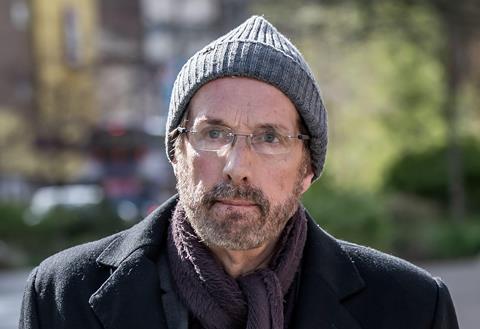Chris Brain’s conviction of indecent assault has brought justice but it also raises deeper questions about power, coercion, and spiritual abuse within the Church. Hayley Chapman-Todd explores how the Church is beginning to respond to the issue of spiritual abuse and what more must be done

NOS was a prominent evangelical service that operated out of St Thomas Crookes Church in Sheffield during the 1980s and early 1990s.
In light of his convictions, it is uncontroversial to say that Brain sexually abused women at the NOS. But the court also heard a great deal of evidence about the culture Brain fostered at the NOS. This not only provided important context for his offending, but I believe it also showed that he spiritually abused people at the NOS – even beyond those he physically assaulted.
What is spiritual abuse?
Spiritual abuse has traditionally had something of a definition problem.
Most of us have (unfortunately) heard of individuals misusing religion in order to facilitate sexual or physical abuse. For example, the pastor at Keighley Pentecostal Church who committed child sexual offences under the pretence of carrying out “deliverances”, or Anglican Bishop Peter Ball who anointed his victims’ genitals to “enable every part of their body to be part of God”. Clearly, these gross distortions of Christian practices were used to facilitate sexual abuse, and it is uncontroversial to call this “spiritual abuse”.
In more recent years, there has been discussion within the Church about spiritual abuse as a distinct type of abuse. Defining this has proved more difficult, particularly if no physical contact takes place, and when there are often widely differing interpretations of scripture and of the behavioural standards expected of both lay people and clergy.
But the concept of coercive control has provided a helpful frame of reference for defining spiritual abuse. In 2015, coercive control within an intimate personal relationship (i.e. between spouses, partners or parents and children) was made a criminal offence and given a statutory definition under the Serious Crime Act.
Coercive control usually involves a combination of emotional, psychological and economic abuse, although physical and sexual abuse may be present as well. Examples include controlling the victim’s daily activities and behaviour (such as what they wear and which friends they see), using digital devices to monitor the victim, controlling access to the victim’s bank accounts, or reproductive coercion. The perpetrator may intentionally undermine and manipulate the victim, or threaten them with harm to themselves or their children.
Since 2021, the Church of England’s safeguarding manual has contained a formal definition of spiritual abuse, and coercive controlling behaviour is at its crux. In brief, it defines spiritual abuse as “a systematic pattern of coercive and controlling behaviour in a religious context”.
The manual gives a number of practical examples of spiritual abuse, including the use of scripture to justify abusive behaviour, the suggestion that obedience to the abuser is equivalent to obedience to God, or a pastoral or mentoring relationship that is highly controlling.
Chris Brain and spiritual abuse
At Brain’s trial, witnesses described behaviour that had all the hallmarks of spiritual abuse.
Prosecutors described the NOS as a “cult”, tightly controlled by Brain and structured around his power. Anyone who opposed Brain could be ostracised. Members of the NOS were encouraged to donate large sums of money, cut themselves off from family and friends, and change their looks.
Brain also set up a “home base team” in which he required female members of NOS to assist his household. This assistance included attending upon him in his bedroom before he went to sleep, which is also when many of the sexual offences occurred. Victims described how they were too scared of being excluded from the NOS to refuse.
One survivor told the court she felt unable to question Brain’s actions because he “represented God”. This theme of Brain as a God-like figure was reiterated by multiple witnesses.
Another woman told the court how Brain would grope her in public and gaslit her into believing she was a “sex maniac” who needed healing. She said: “I thought if I questioned it, I wasn’t being a good Christian. I had been controlled – psychologically, spiritually, emotionally. You’re not allowed to question because he represented God.”
What next?
The Bishop of Sheffield, Dr Pete Wilcox, recently issued a statement recognising Brain’s “appalling abuse of power and leadership”. An independent Safeguarding Practice Review (SPR) is also due to be commissioned in relation to the responses of the Church to concerns raised about Brain at the time.
It may be that this review will make factual findings of spiritual abuse by Brain, in the same way as other recent investigations by the Church. For example, in September 2023 the Church of England’s investigation into the evangelical leader Mike Pilavachi concluded that concerns of “an abuse of power relating to his ministry, and spiritual abuse” were substantiated.
Could Brain face prosecution for coercive control? After his convictions for indecent assault, Julie Moss, Senior Crown Prosecutor of the Crown Prosecution Service, said that Brain “clearly engaged in controlling behaviour”. However I expect that no charges were brought for coercive control offences because most of the victims were not in an intimate partner relationship with the married Brain (even though he may have at times tried to convince them they were).
However, it is quite possible to bring a claim in the civil courts for spiritual abuse. As a solicitor who regularly represents survivors of abuse, including in religious contexts, I am increasingly seeing spiritual abuse included in civil claims against religious leaders and institutions.
While some people may feel uneasy about the prospect of civil litigation against the Church, such claims are based on restorative justice: the underlying principle is to put the victim back in the position they would have been in had the abuse not occurred. Though financial compensation can never truly undo the damage, it can assist the survivor to access the therapy they need and move on with their life.
The SPR will hopefully shed more light on Chris Brain’s crimes and the issue of spiritual abuse, and what lessons can be learned by the Church. But for now, it is relieving that Chris Brain was finally brought to justice for the atrocious crimes he committed.



































No comments yet